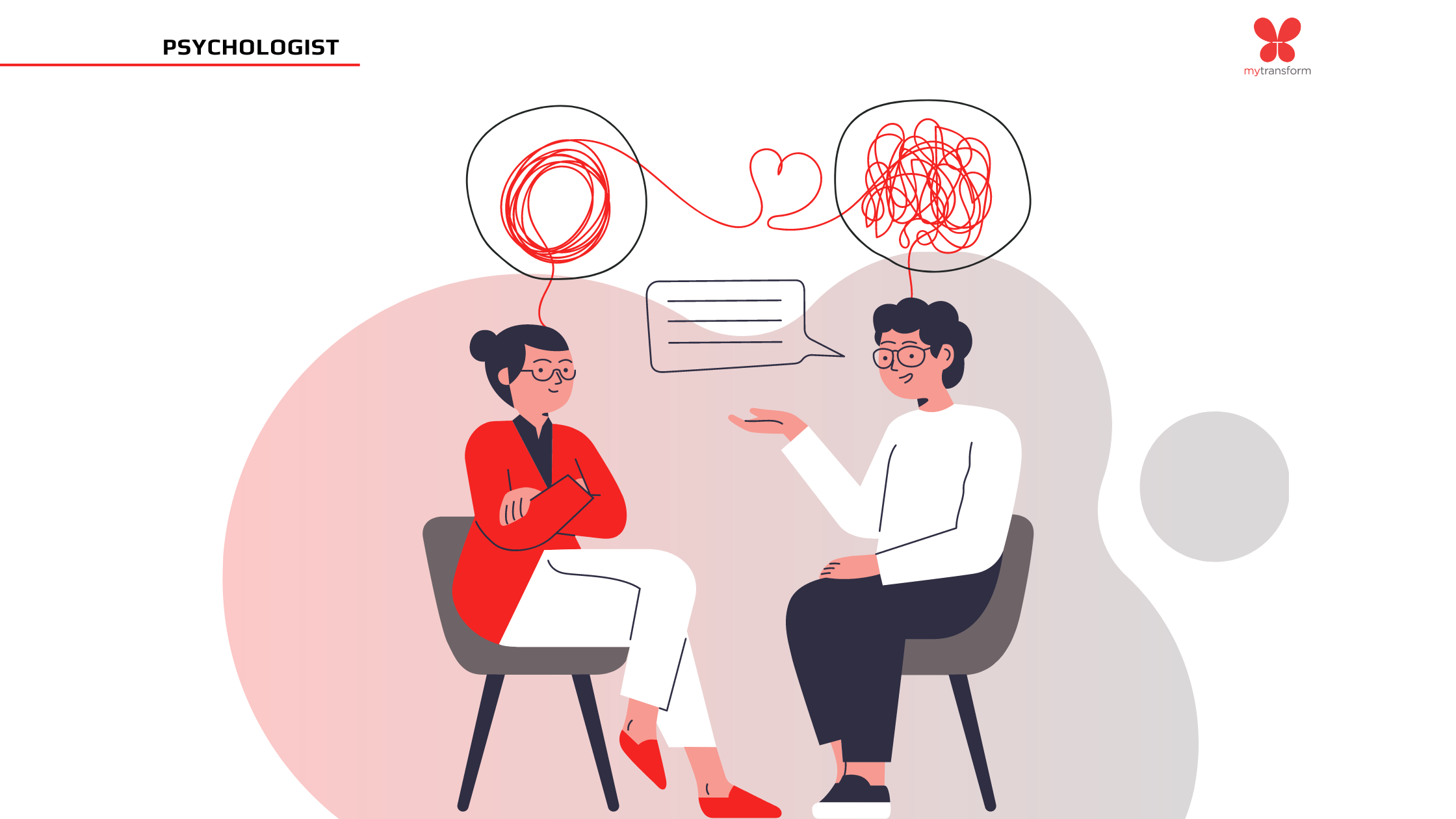Why the Best Psychologist in Delhi Can Transform Your Mental Well-Being
Why the Best Psychologist in Delhi Can Transform Your Mental Well-Being
Blog Article
Psych Therapy: A Comprehensive Guide to Outcomes and strategies

Cognitive-Behavioral Treatment
Cognitive-Behavioral Treatment (CBT) is an extensively made use of psychotherapeutic approach that concentrates on recognizing and customizing dysfunctional reasoning and actions patterns. Established in the 1960s by Aaron T. Beck, CBT combines cognitive and behavior concepts to resolve numerous psychological health and wellness issues, including anxiety, anxiety, and stress-related conditions. The premise of CBT is that maladaptive ideas add to psychological distress and maladaptive habits. By restructuring these thoughts, people can accomplish substantial improvements in their psychological wellness and day-to-day functioning.
Methods such as cognitive restructuring, direct exposure treatment, and skill-building exercises are typically employed. Cognitive restructuring involves tough and modifying negative thought patterns, while direct exposure treatment aims to lower anxiety and anxiousness with gradual exposure to been afraid objects or situations.
Evidence-based study sustains the efficacy of CBT for a variety of psychological problems - Best Psychologist in Delhi. Its focus on ability procurement and self-help strategies encourages clients to proceed development individually after therapy concludes. The adaptability and efficiency of CBT have made it a foundation in modern psychotherapeutic practice
Psychodynamic Strategies
Rooted in the early theories of Sigmund Freud, psychodynamic strategies concentrate on discovering the unconscious mind and its influence on actions and feelings. These approaches aim to uncover surprise ideas and feelings that may be driving maladaptive actions and emotional distress. Central to this method is the idea of inner dispute, often stemming from unresolved previous experiences, specifically those from youth.
Therapists using psychodynamic strategies use numerous crucial approaches, including free organization, where individuals are encouraged to talk openly to expose subconscious material, and dream evaluation, which analyzes the concealed material of desires. In addition, the expedition of transfer and countertransference dynamics within the therapeutic partnership is vital. These communications can supply insights into the individual's interior globe and relational patterns.
Psychodynamic treatment is usually longer-term compared to other methods, supplying a deep and thorough understanding of the person's subconscious. Research study suggests that it can be specifically reliable for complicated psychological health and wellness problems, such as individuality conditions and persistent anxiety. By fostering self-awareness and psychological insight, psychodynamic therapy seeks to bring unconscious material to awareness, enabling individuals to accomplish long-term and purposeful change in their lives.
Humanistic Methods
Structure on the foundations laid by psychodynamic approaches, humanistic strategies supply an unique viewpoint focused on specific prospective and self-actualization. Coming from the mid-20th century, these techniques focus on the intrinsic benefits and growth potential of people, emphasizing a holistic view of human experience. Key numbers such as Carl Rogers and Abraham Maslow have actually dramatically influenced this restorative approach, which incorporates methods like client-centered treatment and Gestalt therapy.
Client-centered treatment, established by Rogers, plays an essential role in humanistic techniques. The therapist's function is more of a facilitator than an authority, urging customers to harness their inner resources for recovery.
Gestalt therapy, an additional vital humanistic strategy, emphasizes present minute understanding and the combination of body and mind. By concentrating on the "here and now," clients acquire greater understanding into their present feelings and actions. Methods such as role-playing and assisted visualization are commonly employed to assist customers acquire a much deeper understanding of themselves, eventually bring about enhanced self-awareness and gratification.
Integrative Therapies
Integrative treatments stand for a synthesis of various therapeutic strategies tailored to satisfy the one-of-a-kind demands of each customer. This strategy recognizes the intricacy of human psychology and the multifaceted nature of mental health and wellness concerns. By combining elements from various colleges of psychiatric therapy-- such as cognitive-behavioral therapy (CBT), psychodynamic treatment, go to website and humanistic approaches-- integrative treatments supply an even more flexible and all natural treatment paradigm.
Practitioners of integrative therapy examine each customer's specific demands, symptoms, and personal history to create a tailored therapy strategy. This personalized approach enhances the potential for healing success by resolving the source of psychological distress and advertising general health. Strategies might consist of mindfulness exercises, cognitive restructuring, and emotional processing, each picked to target different facets of the customer's concerns.
Moreover, integrative therapies emphasize the healing relationship, watching the client-therapist bond as an important part of effective therapy. This relationship cultivates an encouraging atmosphere where customers really feel risk-free to explore and resolve their issues. The versatility of integrative therapies makes them ideal for a broad variety of problems, including anxiousness, anxiety, trauma, and social troubles, thus raising their applicability and performance in diverse scientific settings.

Measuring Therapy Outcomes
Evaluating the performance of psychotherapy is critical for both medical professionals and customers to ensure that the therapy is producing the wanted outcomes. To attain this, various approaches and tools are used to measure treatment outcomes systematically. Standard evaluation tools, such as the Beck Depression Supply (BDI) and the Generalized Stress And Anxiety Problem 7 (GAD-7), offer measurable data on signs and symptom seriousness and adjustments in time.
In addition to standard devices, qualitative approaches like customer self-reports and professional meetings supply useful insights right into the individual experiences and viewed development of customers. Regularly set up analyses, usually at the beginning, midpoint, and end of therapy, help in tracking the trajectory of improvement or recognizing locations needing change.
Result measurement is not limited to signs and symptom reduction; it also incorporates useful enhancements in day-to-day live, such as far better social partnerships, increased job performance, and boosted total wellness. Modern advancements in electronic health and wellness have introduced mobile applications and on the internet platforms that assist in real-time tracking and comments, additionally improving the assessment process.
Ultimately, a comprehensive approach to determining therapy outcomes guarantees that therapeutic interventions are efficient, effective, and tailored to meet the individual needs of clients, thereby maximizing the total healing experience.
Verdict
Psychiatric therapy uses a complex selection of techniques focused on addressing details psychological health issues and boosting general health. Cognitive-Behavioral Treatment and psychodynamic strategies target dysfunctional thoughts and subconscious impacts, respectively. Humanistic methods concentrate on personal development and self-actualization, while integrative therapies incorporate numerous techniques for tailored therapy plans. Evaluating therapy end results with qualitative techniques and standard assessments makes get more sure an extensive understanding of effectiveness, eventually directing customers toward enduring psychological wellness enhancements.
From the organized method of Cognitive-Behavioral Treatment (CBT) to the deep expedition of the unconscious in psychodynamic therapy, each approach brings unique benefits. Its focus on skill procurement and self-help strategies empowers clients to proceed progress independently after therapy wraps up (Best Psychologist in Delhi). Secret numbers such as Carl Rogers and Abraham Maslow have substantially affected this healing method, which includes approaches like client-centered treatment and Gestalt therapy

Report this page